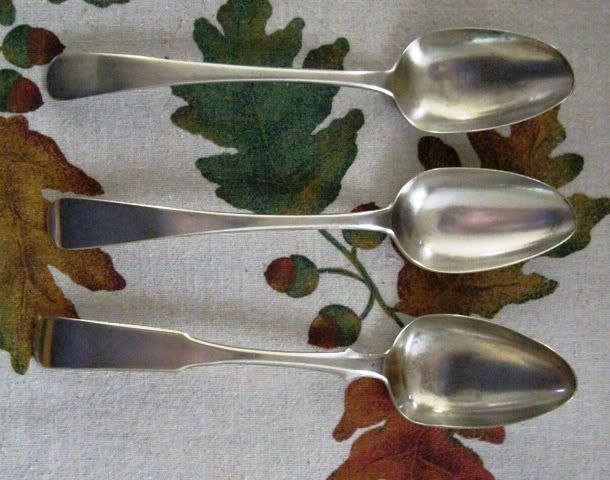http://s42.photobucket.com/albums/e330/Kbotard/Silver/





It's amazing that these 2 spoons are that old. Amazing and how did they make it to my little part of the world? I believe they are going to stay with me unless hard times hit again. The spoon I only have one of is more curved at the end of the handle than the other two.From left to right: Townmark of St. Petersburg. Assayer ÐЯ = Jutschinov (Jutschinikov, Jutschenkov) Alexandr Ilitsch, on duty1795-1826. Silver content 84 Zolotniki, CF = maker

